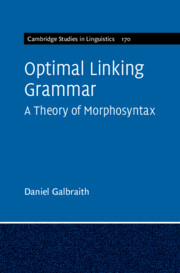4 - Faroese Dative Subjects
Published online by Cambridge University Press: 20 April 2023
Summary
Chapter 4 zooms in on dative-subject predicates in Faroese and presents new survey data from the Faroe Islands and Iceland. The preceding literature on Faroese non-nominative subjects is reviewed before the Faroese and Icelandic surveys on quirky case monotransitives are described in detail. The implications of the results are discussed in relation to case-assignment, agreement and word order, and the author’s proposed analysis is presented along with a factorial typology. Two Faroese surveys and one Icelandic survey testing possible object positions in quirky case sentences are discussed. The results are consistent with the hypothesis that the structural object position of nominative arguments in Icelandic, and that of accusatives in Faroese, is the same regular object position of nominative–accusative case frames. On the other hand, the results are inconsistent with the hypothesis that the object position is different between the two languages (and hence that such a difference is responsible for the difference in case-marking). These conclusions are discussed in detail in the OLG analysis section, which attributes the difference to constraint interaction, particularly a different ranking of a pair of constraints enforcing structural object case (accusative) and agreement with a nominative argument, respectively.
Keywords
- Type
- Chapter
- Information
- Optimal Linking GrammarA Theory of Morphosyntax, pp. 76 - 104Publisher: Cambridge University PressPrint publication year: 2023



